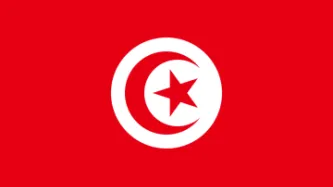Search
Content type: Examples
Protesters in Tunisia have faced hate messages, threats, and other types of harassment on social media, and been arrested when they complain to police. Arrests and prosecutions based on Facebook posts are becoming more frequent, and in street protests law enforcement appears to target LGBTQ community members for mistreament. In a report, Human Rights Watch collected testimonies to document dozens of cases in which LGBTQ people were harassed online, doxxed, and forcibly outed; some have been…
Content type: Examples
Tunisian authorities have sent humanly remote-controlled robots onto the streets to enforce the country's lockdown; videos shared on social media show the robots challenging Tunisians in the country's capital to ask if they are aware of the rules and demand where they are going. The robots, known as "P-Guard" and made by Enovaro Robotics, are equipped with infrared and thermal cameras as well as a laser telemetry system.
Source: https://www.middleeasteye.net/news/coronavirus-tunisia-lockdown-…
Content type: Examples
Facebook has taken down 65 accounts, 161 pages, dozens of groups and four Instagram accounts, which were ran by Archimedes Group, an Israeli political consulting and lobbying firm that aimed at disrupting elections in various countries.
Archimedes was mostly active in Sub-Saharan Africa but also some part of Southeast Asia and Latin America. According to Facebook, the accounts taken down were attempting to influence people in Nigeria, Senegal, Togo, Angola, Niger and Tunisia. But the most…
Content type: State of Privacy
Introduction
Acknowledgment
The State of Surveillance in Tunisia is the result of an ongoing collaboration by Privacy International and partners.
On 14 February 2023, the United Nations High Commissioner for Human Rights voiced concern over the deepening crackdown in Tunisia targeting perceived political opponents of President Kais Saied as well as civil society.
We have updated this page to reflect important changes in the state of surveillance in Tunisia.
Key privacy facts
1.…
Content type: News & Analysis
In the coming year, the elections to be held in Nigeria, Indonesia, Turkey, Ethiopia, Mexico, and Tunisia will be closely watched. Not only will the international community be monitoring the elections, but domestic governments could be monitoring their own citizens at the ballot box.
When courageous citizens brave uncertain political and societal contexts to exercise one of their fundamental human rights - the right to vote - they will rely on another fundamental human right - privacy. Privacy…
Content type: Press release
In collaboration with the Wall Street Journal and the Guardian, Privacy International today published a database of all attendees at six ISS World surveillance trade shows, held in Washington DC, Dubai and Prague between 2006 and 2009. ISS World is the biggest of the surveillance industry conferences, and attendance costs up to $1,295 per guest. Hundreds of attendees are listed, ranging from the Tucson Police Department, to the government of Pakistan, to the International…

